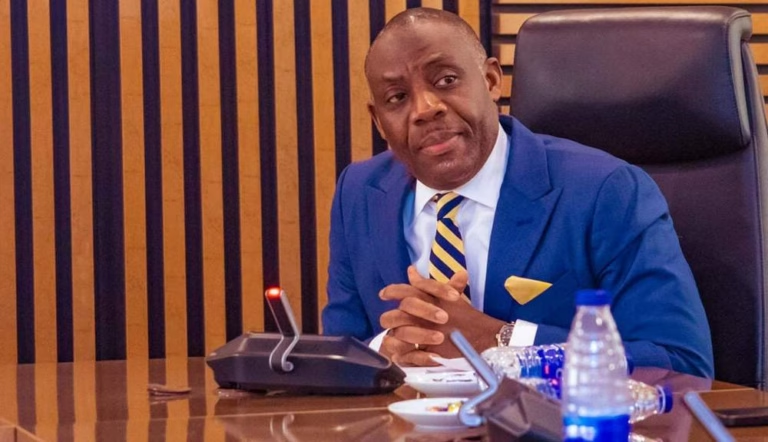On Tuesday, the Federal Government introduced an innovative digital platform aimed at enhancing transparency, accountability, and operational efficiency within Nigeria’s higher education system.
Named the Federal Government Tertiary Institution Governance and Transparency Platform (FTIGTP), this tool was officially launched by the Minister of Education, Dr. Tunji Alausa, during an event in Abuja.
Minister Alausa hailed the platform as a significant breakthrough in the government’s ongoing efforts to modernize the administration of universities, polytechnics, and colleges of education by leveraging data-centric governance.
The FTIGTP is designed to function as a unified digital repository, offering instantaneous access to authenticated institutional, financial, and administrative data from all tertiary institutions nationwide.
“For the first time, Nigeria will have a dependable, consolidated source of information on student enrollment figures, research funding, government disbursements, TETFund support, and essential performance indicators to benchmark institutions,” the minister explained.
He further emphasized that this initiative is in harmony with President Bola Ahmed Tinubu’s Renewed Hope Agenda, which prioritizes openness and responsibility in public sector management.
“This platform embodies President Tinubu’s commitment to transparent governance, enabling Nigerians to clearly observe how public funds are distributed and utilized within the tertiary education sector,” Alausa added.
The minister highlighted that the FTIGTP addresses the long-standing issue of fragmented institutional data, which has historically impeded strategic planning and financial accountability.
Key advantages anticipated from the platform include enhanced strategic planning and budgeting, increased credibility for international collaborations, stronger industry partnerships, and improved competitiveness through performance evaluation.
Compliance with the platform will be compulsory for all tertiary institutions, which must submit comprehensive annual reports during the first quarter. These reports will cover budget allocations, staffing expenses, capital investments, and research funding details.
Moreover, universities and colleges will be mandated to disclose quarterly updates on endowment funds, student population statistics for both undergraduate and postgraduate levels, and all revenue from domestic and international research grants.
“The FTIGTP transcends being a mere digital interface-it is a transformative tool,” Alausa asserted. “It will enhance accountability, minimize opacity, and foster a culture of results-oriented management across Nigeria’s tertiary education institutions.”
The Federal Ministry of Education stated that this platform also aims to align Nigeria’s educational governance with international standards and best practices.
Beyond regulatory compliance, the ministry underscored that the portal is a cornerstone of a wider reform strategy focused on rebuilding public confidence, enabling performance-based funding, and elevating Nigeria’s standing in global education rankings.
Regular audits will be conducted to verify data accuracy and transparency, with future funding-including allocations from TETFund-contingent upon full adherence to the reporting protocols.
“By making these data publicly accessible, the government seeks to eliminate mismanagement, reinforce accountability, and provide parents, students, and stakeholders with a transparent view of how education resources are allocated,” the ministry concluded.





















